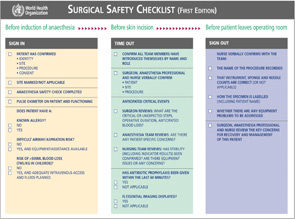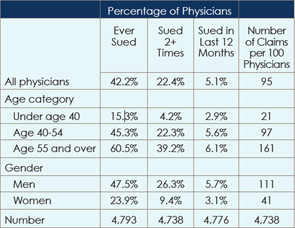A 27.4 percent Medicare cut was scheduled to begin Mar. 1.


A 27.4 percent Medicare cut was scheduled to begin Mar. 1.


Otolaryngologists may be wondering for a bit longer what their next step should be now that HHS has delayed the October 2013 implementation of the 10th revision of the International Statistical Classification of Diseases coding system (ICD-10).

Doctors Rima and Robert DeFatta, married otolaryngologists who work at Sacred Heart Hospital in Eau Claire, Wisconsin, spend about an hour each day dealing with insurance-related hassles. About 20 percent of their patients are un- or underinsured, so the two physicians spend time dashing off letters to insurance companies, re-jiggering treatment plans and helping patients access available resources. Recently, Rima DeFatta, MD, had to figure out how to diagnose a patient who presented with symptoms that suggested possible neurologic involvement.

The health care reform law passed in March created a $50 million demonstration program to test alternatives to the current medical liability system. But reaction is mixed as to whether the new project will help fix what the physician and medical liability insurance communities view as a flawed and inefficient system.
The patient-centered medical home’s star appears to be rising. Thirty-eight states are testing this model of care in some way, according to the National Academy for State Health Policy. The federal health system reform law, passed this spring, includes several provisions encouraging the concept.
The new duty hour regulation from the Accreditation Council for Graduate Medical Education (ACGME) that limits first-year residents to 16-hour shifts has drawn a conflicted chorus of reactions from attendings, who have only seven months before the stipulation goes into effect.

With greater scrutiny of doctors and easier access to information about doctors’ education, the American Board of Otolaryngology’s Maintenance of Certification (MOC) program is more important than ever, said Robert Miller, MD, executive director of the American Board of Otolaryngology (ABOto).

Need an incentive to implement an electronic health records (EHR) system in your practice? How about $44,000? That’s the amount the federal government is making available to eligible physicians as part of its effort to speed up the adoption of health information technology throughout the U.S. In fact, under the Health Information Technology for Economic and Clinical Health Act (HITECH Act), part of the American Recovery and Reinvestment Act of 2009, billions of federal stimulus dollars are flowing to medical practices throughout the U.S. to help physicians set up EHR systems.
The time for otolaryngologists to adopt electronic health records (EHRs) is now, practice management and information technology experts said at a session at the 2010 Annual Meeting of the American Academy of Otolaryngology-Head and Neck Surgery, held here Sept. 26-29.